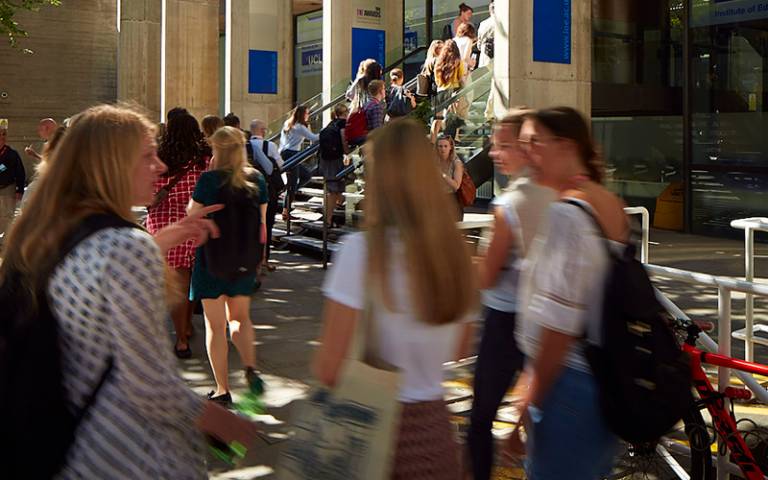UCL named Number 1 for Education in The Guardian University Guide 2022
23 September 2021
UCL has been named as the best UK University for the subject area of Education, according to The Guardian University Guide 2022.

The league tables, which compare undergraduate programmes across UK institutions, lists UCL Institute of Education’s (IOE) Education Studies BA as number 1 in the Education subject table.
The Education Studies BA is an interdisciplinary degree that draws on history, sociology, philosophy, and psychology, to provide our students with the critical tools necessary to reflect on education, society and culture, and to become leaders of social and political change. Students learn to think about education as not only being something that happens in schools and classrooms, but as a driving force for change relevant to how we think about workplaces, the media, globalisation, migration, politics, social justice, culture, and the economy.
The degree also offers second year students the chance to take a structured placement in a very wide range of organisations including schools, think tanks, trade unions, NGOs, charities, museums and heritage sites.
The Guardian’s league tables look at quality of teaching and career prospects and rank universities through eight different scores. These include what students say about their teaching, feedback and the course itself in the annual National Student Survey. For 2022, the 2021 and 2020 survey results have been combined to reflect universities’ pandemic response and their performance in a normal year.
Dr Mark Freeman, co-programme lead of the Education Studies BA, said: “The BA Education Studies team is delighted with the results of the Guardian subject rankings for Education. This reflects the excellence of both staff and students on the programme, and the dedication that all bring to the pursuit and maintenance of a high-quality well-rounded undergraduate programme. The number 1 ranking is a great tribute to all involved with this innovative and exciting degree programme.”
Dr Georgina Brewis, co-programme lead of the Education Studies BA, said: “Our students have the opportunity to study a multi-disciplinary programme in both breadth and depth, and after graduation they go on to fulfilling careers within and beyond education, including in research, policy making, government, international development, the media, heritage and culture.”
Links
- Best UK universities for education – league table
- Education Studies BA
- Undergraduate courses at UCL Institute of Education
 Close
Close

